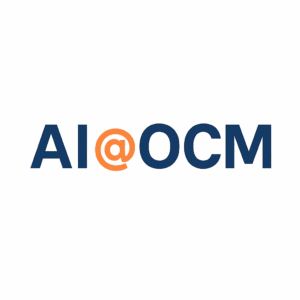The Spectrum of Organizational Change Management Roles Across Organizations
Organizational Change Management (OCM) is a crucial discipline within the business landscape, essential for navigating the complexities of change within organizations. This article explores the diverse roles within the OCM spectrum, examining how these roles vary in scope, responsibility, and interaction with other business functions.
Understanding the OCM Spectrum
OCM roles can be visualized on a spectrum. At one end, OCM professionals are deeply engaged, often blurring the lines with other specialties like project management, communications, training, and human resources. On the opposite end, OCM practitioners operate as a consultative body, intervening only when gaps in change management are identified and not effectively addressed by existing teams.
Fully Engaged OCM Roles
In a fully engaged OCM role, practitioners are deeply integrated into all aspects of the change process. These roles often require a blend of skills and knowledge across various domains.
- Cross-Functional Integration: Practitioners in these roles work closely with project management teams, ensuring that the human aspects of change are considered alongside technical or operational changes. This involves collaboration with project managers to align change management strategies with project timelines and deliverables.
- Communication Specialists: Effective communication is a cornerstone of successful change management. OCM practitioners in this role specialize in crafting and delivering messages that resonate with all stakeholders, facilitating understanding and buy-in for the change.
- Training and Development: These OCM professionals focus on equipping employees with the skills and knowledge needed to adapt to change. This involves assessing training needs, developing training programs, and ensuring that staff are adequately prepared for new systems, processes, or structures.
- HR Integration: OCM roles at this end of the spectrum often overlap with HR functions. These practitioners work on aligning change initiatives with HR policies and practices, such as performance management, employee engagement, and talent development.
Consultative OCM Roles
At the other end of the spectrum, OCM roles are more consultative and strategic.
- Gap Identification and Mitigation: Here, OCM practitioners act as advisors, identifying potential gaps in the organization’s change management approach. They provide recommendations and strategies to address these gaps, often stepping in when existing teams are struggling to manage aspects of change effectively.
- Change Readiness Assessments: These professionals focus on evaluating an organization’s readiness for change. They conduct assessments to understand the impact of proposed changes and the organization’s capacity to absorb and adapt to these changes.
- Stakeholder Engagement: In a consultative role, OCM practitioners work to ensure that stakeholder interests are understood and addressed. This involves mapping out stakeholders, assessing their levels of influence and interest, and developing strategies to engage them effectively.
- Change Measurement and Analysis: These roles focus on measuring the effectiveness of change initiatives. This includes developing metrics to assess change adoption, employee engagement, and the overall success of change efforts.
Balancing OCM and Other Specialties
A key challenge for OCM practitioners is balancing their role with other specialties. While it’s beneficial for OCM professionals to have a broad skill set, it’s also important to maintain clear boundaries to avoid role confusion and ensure that each function can effectively contribute its expertise.
Collaboration with Project Management
While OCM and Project Management (PM) are distinct disciplines, they are complementary. Effective collaboration between OCM and PM professionals ensures that change initiatives are not only technically successful but also embraced and adopted by the organization.
Communication and HR Partnerships
OCM practitioners often work closely with communications and HR teams. This partnership ensures that change messages are aligned with organizational values and culture and that HR policies support the change process.
Conclusion
The roles within the OCM spectrum are diverse, each bringing a unique set of skills and perspectives to the change process. Whether deeply engaged in multiple functions or serving in a more consultative capacity, OCM practitioners play a vital role in guiding organizations through the complexities of change. By understanding and respecting the nuances of these roles, organizations can better navigate the challenges of change and emerge stronger and more resilient.






